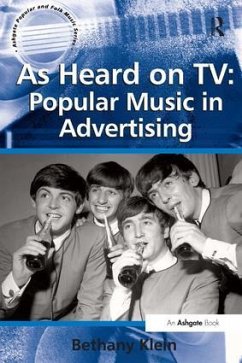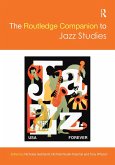The use of popular music in advertising represents one of the most pervasive mergers of cultural and commercial objectives in the modern age. Steady public response to popular music in television commercials, ranging from the celebratory to the outraged, highlights both unresolved tensions around such partnerships and the need to unpack the complex issues behind everyday media practice. Through an analysis of press coverage and interviews with musicians, music supervisors, advertising creatives, and licensing managers, As Heard on TV considers the industrial changes that have provided a foundation for the increased use of popular music in advertising, and explores the critical issues and debates surrounding media alliances that blur cultural ambitions with commercial goals. The practice of licensing popular music for advertising revisits and continues a number of themes in cultural and media studies, among them the connection between authorship and ownership in popular music, the legitimization of advertising as art, industrial transformations in radio and music, the role of music in branding, and the restructuring of meaning that results from commercial exploitation of popular music. As Heard on TV addresses these topics by exploring cases involving artists from the Beatles to the Shins and various dominant corporations of the last half-century. As one example within a wider debate about the role of commerce in the production of culture, the use of popular music in advertising provides an entry point through which a range of practices can be understood and interrogated. This book attends to the relationship between popular culture and corporate power in its complicated variation: at times mutually beneficial and playfully suspicious of constructed boundaries, and at others conceived in strain and symbolic of the triumph of hypercommercialism.
Hinweis: Dieser Artikel kann nur an eine deutsche Lieferadresse ausgeliefert werden.
Hinweis: Dieser Artikel kann nur an eine deutsche Lieferadresse ausgeliefert werden.








